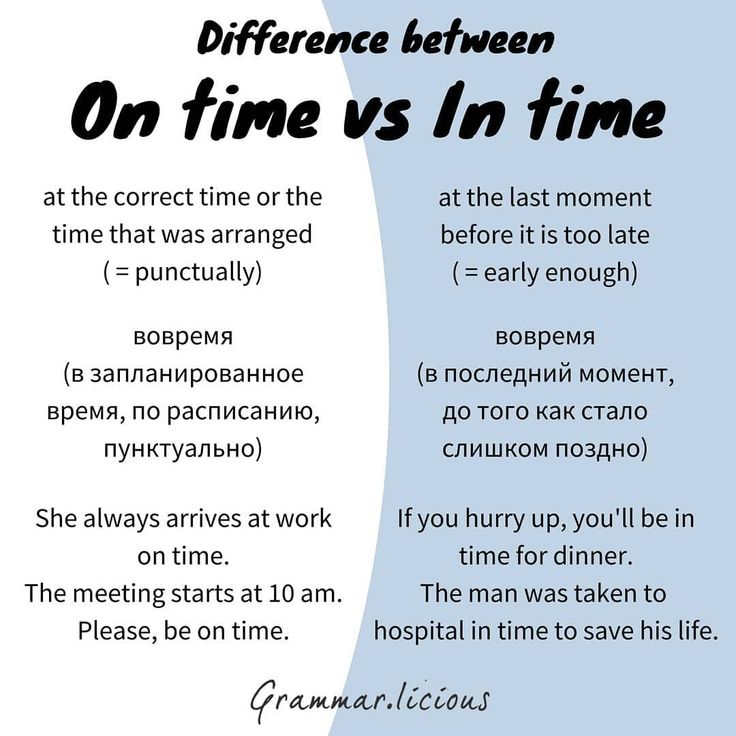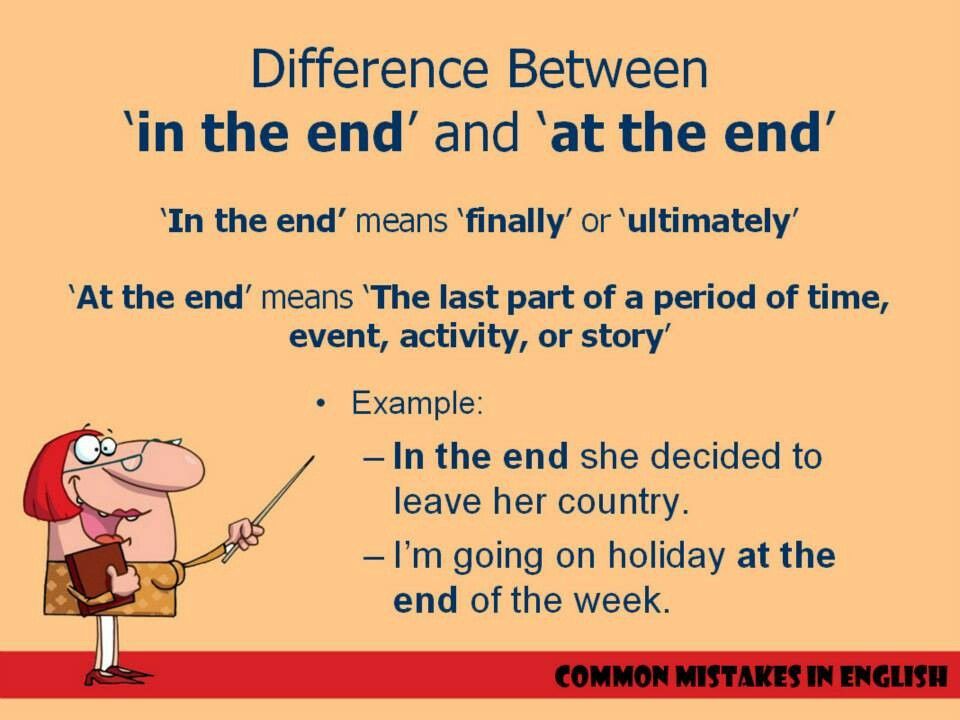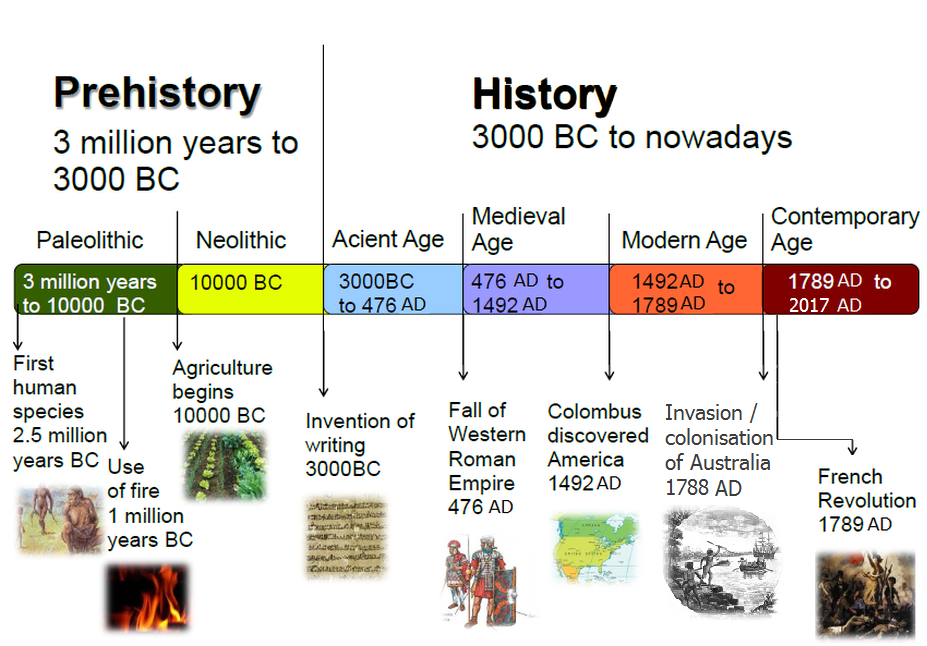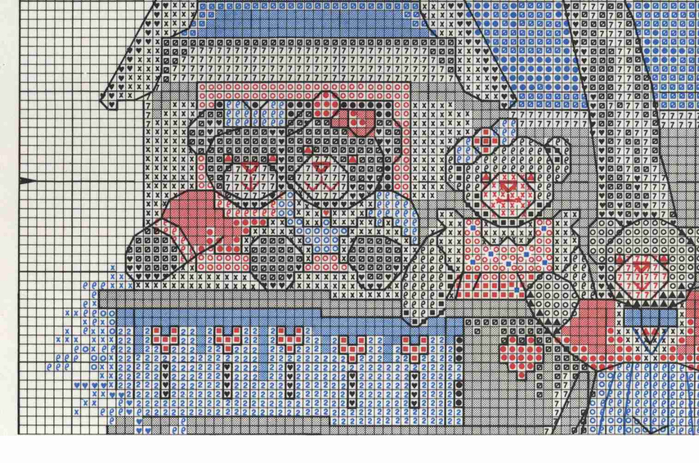Stories on time
Moral stories about time
Story About Sense Of Time
Once an old man and a young man were sitting on the shore of a wild and stormy river.
“Master,” the student asked, “why does the time flow straight, but always ripples, either slowing down to a complete stop, or racing like a cow with a thistle under her tail?”
The teacher looked at the seething water and answered:
“You see there are a few large stones in the river and a lot of small pebbles. Imagine that the river is your life. If you will only rejoice over big occasions – like your wedding that will happen next month, or like a new baby that you will have after one year, or new business that you will start after five years… – then you will cross your life in a few jumps, like jumping from one stone to another. Otherwise, if you will move in small paces over the pebbles, taking joy in small things: a sunny day, the beauty of autumn forest, a good conversation, then later looking back at your life you won’t see ten big stones, but lots of your own traces, and each of them you will be able to remember with a happy smile.
And you will see that the road that you have crossed is much longer.”
“But teacher, when I love or when I do the work that I like or when I have a talk with friends – the time flies fast. But the time drags so long when I’m hurt, when I’m afraid or when I feel lonely.”
“You see,” the old man answered wistfully, “this is what it should be. When we are unhappy, we don’t live but we only exist, so the time lies still in our wallets. And only for our happiness we pay the ringing coin of time, that we still have left.”
Stories about time
One day a wise man was asked a question: “What is time?”
His answer was:
– Yesterday, today, tomorrow…
The one who asked the question was disappointed:
– That’s it?
– Well, – the wise man said, – then listen to this story.
There was Today which wanted to become Always… Yesterday said:
– I also wanted to become Always when I was you…
– Did you ask Always how it does that? – inquired Today.
– I asked.
– And?
– By changing, – was its answer, – by becoming Tomorrow from Today.
– But that means, – Today thought, – that Always does not belong to itself. It is always someone else! It means that something is making it do that. But what is it?
Yesterday said:
– Maybe it’s Time?
– What is time? – Today asked. – It’s only you and me, and also Tomorrow…
The one who was asking the wise man said nothing more, because another person, who was silent before, joined their conversation:
– But wise man, it means that time is the thing what passes. And that is wrong. It can also last by stopping.
The wise man looked at him with curiosity and answered with a smile:
– You are right. Sometimes today can last hundreds and thousands of years… before it passes. Sometimes it feels like yesterday has come back and we are living in it. There is a little bit of tomorrow in yesterday and in today, but we rarely recognise it. It turns out that there is only this trinity.
Importance of Time Management Through Stories
Since childhood, we have heard the famous phrase “time is money”. However, most of us do not understand its real value and thus, we are unable to achieve our goals in life. RevampMind is always a step ahead to help people maintain their living standards and manage life situations effortlessly. So, here, we talk about the importance of time management through a few short stories.
Hopefully, these moral stories in English would change your mindset & motivate you to adopt an ideal routine in your life to balance your personal and professional work together.
Yesterday is history.
Tomorrow is a mystery.
Today is a gift.
That’s why it’s called the present!
Sometimes, when we are sitting idle, we think we have a lot of time. On the other hand, when we have several tasks to do, it seems, time is running.
But why does this happen?
It is a fact that every day, we get only 24 hours, which is common for everyone. But still, why do we sometimes say, time is flying?
Worry not!
Because, once you will understand the value of time, and how to manage it, you can utilize every minute of your precious life without wasting it in vain.
So let’s understand the importance of time management through some motivational and inspirational time management stories.
Get 42 Points Self-Improvement Free PDF Checklist
Tired of living with constant stress and anxiety? Do you want to change your life but don't know HOW?
Our PDF checklist talks about 42 points that would help you to be happy and live the life you want.
A Jar And Props – A Popular Short Story On Time Management
There was a professor at a university who thought of giving a lesson to his students about time management skills and managing it appropriately.
He brought a jar, sand, rocks, water, and some pebbles to the class and kept them on a table. The professor chose a student and asked him to fill the jar with all the props.
The volunteer student started with water and then sand and then pebbles. And finally, he found that there is no space to put all the rocks inside.
Likewise, the professor asked other students as well to perform the task and everyone tried to fill it with all the props but unfortunately didn’t succeed.
Finally, the professor started to fill the jar with rocks, then he added the pebbles, and further he added the sand. Still, there was some space to pour the water and the professor did so.
Moral Of The Story On Time Management
In this story, your life situation has been compared with these props,
Water, sands, and pebbles are to be compared with the tasks/goals which we are more focused to do on priority. For example, we kill our time watching television, surfing Social Media Sites, roaming around with bad companies, and all.
Whereas, the rocks are the biggest goal or task that we used to finish on the least priority.
If you are filling the jar of your life with chunks, there won’t be any space to fill it with the most important things. But doing vice-versa is possible and you can achieve everything in a managed way.
Day With A Limited Credit
Just imagine that your father gives you Rs. 86,400 every day in the morning and gives you the freedom to spend it on anything. But the bet is, the amount will not be carried forward to the next day and will expire the same day.
In such a winning situation, you will probably plan to spend the amount on buying your most desired fashion accessories, study materials, hanging out with friends, and so on. Still, if you are left with some remaining amount that is going to expire soon but you were unable to utilize that. Then despite regret, you can’t do anything.
Moral Of This Short Story On the Importance Of Time Management
The same thing happens with our precious life where each day, we are fortunate with 24 hours, i. e. 86,400 seconds. It is a person’s choice to utilize it for the good or to waste it.
e. 86,400 seconds. It is a person’s choice to utilize it for the good or to waste it.
Imagine the below situation to realize the value of time in a better way.
- 1 year: A student who failed a class.
- 1 Month: A mother who delivered a premature baby.
- 1 Week: A weekly newspaper editor who collected the updates.
- 1 Hour: The lovers who are eagerly waiting to meet their soulmate.
- 1 Minute: A person who missed a train.
- 1 Second: A person who met with an accident.
To keep you motivated, Revamp Mind love publishing unique ideas to fight the difficulties of life. You can read a few other trending articles here.
5 Powerful Women Roles In Ott
Lessons To Learn From ‘The Monk Who Sold His Ferrari’ – Inspirational Story
Work From Home Job Options During The Lockdown
Toxic Relationship: Don’t Ignore These 7 Warning Signs
5 Years of a King
There was a kingdom with a strict rule that every king will serve for 5 years only. Post his rule, he was required to go to the forest to spend the rest of his life. But the strange thing was; that woodland was full of dangerous animals and nothing was available to live a good life. So there won’t be any chance to come back alive.
Post his rule, he was required to go to the forest to spend the rest of his life. But the strange thing was; that woodland was full of dangerous animals and nothing was available to live a good life. So there won’t be any chance to come back alive.
Many kings came to serve in that kingdom and followed the rule as prescribed.
Once, the people of the kingdom decided to choose the desired person as their next king who was very wise. They tried to convince the person to become their next king but he denied it after knowing the rule. But somehow, he agreed to become the next king with a condition.
He asked the people to let him visit that place where every king had gone after giving their services. He found that the place is full of trees and dangerous animals. There were no facilities for survival.
After the inspection, he came back to the kingdom and became the king.
Now, he started to plan for making the forest a peaceful place where survival is possible.
In the first year, he started with the planning and execution of cutting some trees to make a proper path to go inside the forest.
In the second year, he started with the plan to shift the dangerous animals to the safest place apart from that woodland. Further, in the third year onwards, he worked hard to start farming and making some small houses around.
Finally, that forest was enough to live a peaceful life without any problems.
Moral Of This Time Management Short Story
In those 5 years, the king utilized the time properly with the best strategy. In this way, he followed all the rules and in time, he managed to create a way to spend a better life.
This time management story is inspirational for those who are hunting in the present to get a better lifestyle for the future. If we design a plan with time management skills, then definitely, nobody can stop us from achieving success in life.
Best Articles For You
Top 5 Money-Saving Tips For Better Financial Planning & Analysis
Why Is Life Insurance Needed In 2021?
Warren Buffett And An Interview Anchor
In an interview, an anchor asked Warren Buffett (One of the richest men in the world), how he utilize the opportunities of life.
To give a practical idea, Warren Buffett offered a blank cheque and asked her to fill in the desired amount. At the moment, she considered this offer a joke and lost the opportunity to become rich person.
Then Buffett said, you just lost a huge opportunity. In my entire life, I have never missed any opportunities, small or big and that is the reason behind my achievements.
Moral Of This Story On the Importance Of Time Management
If the anchor wouldn’t take the opportunity for granted at that moment, she could have earned a huge amount that was enough to maintain a luxurious life.
In real life, we also get several opportunities and due to fear of family, society, comfort zone, hesitation, etc. we lose them and regret them afterward.
Instead of that, we should live in the present and try to find ways to use as many credits of life as we can.
Final Thoughts
Hope the above Short Stories on time management will help you manage your life in a better way. You can also read other motivational stories at RevampMind like Why I Hate Social Media?, Mantra For A Better Growth & Success, and several other Inspirational stories to manage your time.
You can also read other motivational stories at RevampMind like Why I Hate Social Media?, Mantra For A Better Growth & Success, and several other Inspirational stories to manage your time.
Post Views: 3,336
Lessons in calligraphy history. The main thing is to stop in time in an effort to master the past / Ideas and people / Nezavisimaya Gazeta
The painful attitude of some modern politicians to the December uprising of 1825 can be explained by their doubts about the stability of the Russian state they built. Vasily Timm. Life Guards Horse Regiment during the uprising on December 14, 1825 on St. Isaac's Square. 1853. Hermitage
Historical events cannot be forgotten or rewritten forever. Figuratively speaking, they are dormant and grow through the fabric of today's life when certain conditions arise. Knowledge and awareness of the historical phenomena of the past captures the minds of politicians, historians and ordinary citizens and encourages them to think about the future.
History rewriting history
Rewriting history is not a new occupation; it was done in antiquity, in the Middle Ages, and in modern, and in recent history. This was done by the Roman emperors, and Ivan the Terrible, and Catherine II, and Stalin, and many others. Empires and states collapsed, new dynasties and rulers replaced the old ones, who had the need to correct history in accordance with their own needs and ideas about what a great past should be like or how insignificant and insidious their opponents were. The rewriting of history with the advent of Christianity acquired a religious connotation, and with the advent of ideology at the end of the 18th century and its development in the 19th–20th centuries, it acquired an ideological one. However, it has always had a strong personal imprint. Today, history, approved and accepted at the official level, is a kind of litmus test, showing an ideology lowered from above.
Interestingly, the methods of rewriting history have hardly changed - falsification of facts by replacing some events with others, erasing significant phenomena and characters, but most importantly - a new interpretation of well-known historical events. Only the technique has changed. Emperor Caracalla, seeking to get rid of his rival, not only killed his brother Geta, but also gave the order to erase his image from the facade of the arch near the Bull Market in Rome, and Joseph Stalin, who executed and sent disgraced party leaders and military leaders to camps, erased their names from textbooks and books in a typographical way.
Only the technique has changed. Emperor Caracalla, seeking to get rid of his rival, not only killed his brother Geta, but also gave the order to erase his image from the facade of the arch near the Bull Market in Rome, and Joseph Stalin, who executed and sent disgraced party leaders and military leaders to camps, erased their names from textbooks and books in a typographical way.
An example of a skillful rewriting of history was remarkably described by the Russian publicist and literary critic Nikolai Dobrolyubov, having analyzed the work of Catherine II “Notes on Russian History”: “In general, in the Notes on Russian History, the Empress, giving us an example of her views on history, at the same time presented the ability to carry one's thought through the entire work and direct it towards the confirmation of one's idea, without resorting to either obvious exaggerations or a complete distortion of reliable facts. Sometimes she gave them her own meaning, kept silent about one thing and changed the tone of the story about another; but the art of storytelling was such that it did not even occur to the reader that there could be anything other than what was being communicated to him.
Probably, the witty thesis about the unpredictability of the past applies not only to Russia, but in relation to recent Russian history, it acquires special significance due to the tragic nature of its development, which resulted in the dichotomy of the historical consciousness of post-Soviet Russia.
Who are we?
After the Soviet Union ceased to exist, one of the main questions was the dilemma: who is post-Soviet Russia - the successor and successor of the USSR or the Russian Empire? Initially, the Solomonic solution to this problem in the ongoing discussion between historians and lawyers about the national-state succession of the new Russia was found in a simplified definition of the Russian Federation as the successor of the USSR and as the legal successor of the Russian Empire. Legally, the answer to this question was spelled out in the diplomatic formulation of the resolution of the State Duma of the Russian Federation dated 10/23/98: "The Russian state (Rus), the Russian Republic, the RSFSR, the USSR, the Russian Federation are one and the same participant in interstate relations, one and the same subject of international law that does not cease to exist. " This formulation is as true as it is meaningless for understanding the nature of post-Soviet Russia. As the Soviet and Russian historian Sergei Volkov rightly noted, “for a resident of the country itself, in order to understand the essence of the state regime existing in it, it is important not who other countries consider it to be, but who this regime considers itself to be.” This remains the biggest mystery to this day.
" This formulation is as true as it is meaningless for understanding the nature of post-Soviet Russia. As the Soviet and Russian historian Sergei Volkov rightly noted, “for a resident of the country itself, in order to understand the essence of the state regime existing in it, it is important not who other countries consider it to be, but who this regime considers itself to be.” This remains the biggest mystery to this day.
The finalized federal law on compatriots of 2010, which states that “the Russian Federation is the legal successor and successor of the Russian state, the Russian Republic, the RSFSR and the USSR”, only formally indicates the historical continuity of today's Russia, since it is impossible to find greater antipodes than historical pre-revolutionary Russia and the Soviet Union created on its ashes. The amendment made to the Constitution in 2020 also cannot reconcile the irreconcilable, but raises even more questions: “The Russian Federation, united by a thousand-year history, preserving the memory of the ancestors who passed on to us the ideals and faith in God, as well as the continuity in the development of the Russian state, recognizes historically established state unity. However, our different ancestors also passed on different ideals to us: “commissars in dusty helmets” are one, and “junker gentlemen” are others. If we talk about faith in God, then it simply did not exist in the Soviet Union, the country of scientific atheism. So who will inherit today's Russia - pre-revolutionary Russia, Russia of Ivan the Terrible, the Russian Empire of the times of Alexander II, etc.? And which Soviet Union - Stalin's, Brezhnev's, Gorbachev's? Perhaps nothing sheds more light on this existential question than the attitude to the history of power itself.
However, our different ancestors also passed on different ideals to us: “commissars in dusty helmets” are one, and “junker gentlemen” are others. If we talk about faith in God, then it simply did not exist in the Soviet Union, the country of scientific atheism. So who will inherit today's Russia - pre-revolutionary Russia, Russia of Ivan the Terrible, the Russian Empire of the times of Alexander II, etc.? And which Soviet Union - Stalin's, Brezhnev's, Gorbachev's? Perhaps nothing sheds more light on this existential question than the attitude to the history of power itself.
What is good and what is bad?
The latent existing dichotomy of the Russian society of today's Russia, as in a mirror, is reflected in the interpretation and evaluation of historical events from Ancient Rus' to the present day. The place is still the most relevant and unchanged in its importance and interpretation of the topic is the victory and patriotism of the Soviet people in the Great Patriotic War. It is impossible not to admire the selflessness and resilience of the Soviet people, exhausted by collectivization, starvation rations and Stalinist repressions, who fought against Nazi Germany for their Fatherland. By analogy, the idea of patriotism is also the main one in relation to the current Russian leadership towards the Patriotic War of 1812. Napoleonic doctor Barry O'Meara noted in his memoirs that Bonaparte was struck by the desperate resistance and patriotism of the common people, who were, in fact, in slavery, but fought for their homeland.
It is impossible not to admire the selflessness and resilience of the Soviet people, exhausted by collectivization, starvation rations and Stalinist repressions, who fought against Nazi Germany for their Fatherland. By analogy, the idea of patriotism is also the main one in relation to the current Russian leadership towards the Patriotic War of 1812. Napoleonic doctor Barry O'Meara noted in his memoirs that Bonaparte was struck by the desperate resistance and patriotism of the common people, who were, in fact, in slavery, but fought for their homeland.
In order to combat the distortion of history, the Investigative Committee (IC) of the Russian Federation decided in September 2020 to create a unit to investigate crimes related to the falsification of the history of the Fatherland and the rehabilitation of Nazism. It should be noted that the fight against the falsification of history has been waged since time immemorial. In ancient Greece, Herodotus, called by Cicero the "father of history", became the creator of the first great historical encyclopedia of the ancient world - "History of the Greco-Persian Wars" and was a fighter against the mythologization of history. In 1440, the Italian humanist and philologist Lorenzo Valla exposed, through philological analysis, the forgery (now they would say fake) of the so-called Constantine gift, which served as a justification for the Catholic Church's claims to supremacy over secular power. Similarly, the Russian historian Nikolai Karamzin questioned the authenticity of Slinger's book about the supposed heretic Martin. This work has been used since the time of Peter I to fight the Old Believers.
In 1440, the Italian humanist and philologist Lorenzo Valla exposed, through philological analysis, the forgery (now they would say fake) of the so-called Constantine gift, which served as a justification for the Catholic Church's claims to supremacy over secular power. Similarly, the Russian historian Nikolai Karamzin questioned the authenticity of Slinger's book about the supposed heretic Martin. This work has been used since the time of Peter I to fight the Old Believers.
The creation of a special structure in the NC inevitably raises the question of whether scientific discussion on historical topics will continue to be possible, that is, whether historical science itself will be preserved. For example, the existence of a secret protocol to the Molotov-Ribbentrop Pact of August 23, 1939 (on the division of Europe into spheres of influence between the USSR and Germany) was always indignantly denied in the Soviet Union, and its publication in the West was declared a fake (about which dissertations were written in the USSR ). December 1989 years the existence of a secret protocol was recognized in the USSR, he was officially condemned in a resolution of the Congress of People's Deputies. In 1992, the original protocol was found in Russian archives, and in 2019 it was published. However, his assessment today reveals diametrically opposed points of view.
December 1989 years the existence of a secret protocol was recognized in the USSR, he was officially condemned in a resolution of the Congress of People's Deputies. In 1992, the original protocol was found in Russian archives, and in 2019 it was published. However, his assessment today reveals diametrically opposed points of view.
There is a version of Russian historians, supported at the official level, in particular by the Russian Foreign Ministry and the State Duma, that the Non-Aggression Treaty for Moscow was a forced step that gave the Soviet Union almost two years of respite and a territorial buffer to prepare for war and repel aggression. But there is another assessment of this treaty: the Molotov-Ribbentrop Pact was a strategic mistake and a practical crime of the Stalinist leadership. He provided Hitler with a secure rear and supplies of Soviet raw materials for the capture of the rest of Europe, an accelerated buildup of military power and obtaining the support of the population of the Baltics, Western Ukraine and Belarus for a lightning throw to Moscow in four months after June 22, 1941 years old.
There is also a third point of view: the signing of the secret protocol, like other similar agreements, is not a crime in itself. The crime is not the secret protocol itself, but its consequences: the mediocre Finnish campaign, failures in preparations for a big war, the destruction of the army command, repressions against the population of new territories. Can, and most importantly, should the state interfere in the professional discussion of historians? Moreover, the current top Russian leadership at different times assessed both the treaty and its consequences in different ways. And if so, then to the two eternal Russian questions “Who is to blame?” and "What to do?" a third is added: “And who are the judges?”
There are also more complex, ideologically sensitive issues for the authorities related to the attitude towards protest movements, rebellions and revolutions in the history of Russia and other states. In principle, any government does not favor protest movements, whether they are French "yellow vests" or American fans of George Floyd. Undoubtedly, evolution, which sets the vector of progressive development for society, is better than a revolution, which is rarely bloodless, not to mention the "Russian rebellion, senseless and merciless." But evolution is unthinkable without feedback between the government and society. The revolutions of the past have clearly shown that power divorced from the real needs of society itself gave rise to revolutionary movements. It seemed to her - "give me a finger, and they will bite off your hand," but it ended in the death of the whole body. This happened in different historical periods both in Russia and in other countries.
Undoubtedly, evolution, which sets the vector of progressive development for society, is better than a revolution, which is rarely bloodless, not to mention the "Russian rebellion, senseless and merciless." But evolution is unthinkable without feedback between the government and society. The revolutions of the past have clearly shown that power divorced from the real needs of society itself gave rise to revolutionary movements. It seemed to her - "give me a finger, and they will bite off your hand," but it ended in the death of the whole body. This happened in different historical periods both in Russia and in other countries.
Pre-revolutionary historians assessed the Decembrist uprising on December 14, 1825 as a military rebellion against the legitimate government, an apex coup of liberal officers who picked up revolutionary ideas abroad. Meanwhile, it must be recognized that the ideas and goals of the Decembrists were necessary for the normal development of the Russian Empire - the introduction of a constitutional monarchy and the abolition of serfdom. Had Alexander I dared to do this, and there would have been no Decembrist uprising, revolution of 1905, October 1917 years and more. Parliament would take over the functions of providing feedback between the monarch and society and limiting the uncontrolled autocracy, which eventually brought the Bolsheviks to power.
Had Alexander I dared to do this, and there would have been no Decembrist uprising, revolution of 1905, October 1917 years and more. Parliament would take over the functions of providing feedback between the monarch and society and limiting the uncontrolled autocracy, which eventually brought the Bolsheviks to power.
Soviet historiography especially singled out the progressive role of the Decembrists. In accordance with the Bolshevik ideology, the class limitations of the Decembrists did not allow them to complete their plans, but nevertheless they "woke up Herzen." In the later Soviet period of our history, the remarkable historian and writer Nathan Eidelman justifiably considered the Decembrist uprising an attempt to modernize Russia from above. The moral strength of the Decembrists was also sung by writers of the sixties, in particular by Bulat Okudzhava in The Throat of Freedom. Today, the Decembrists are given different assessments: from Dugin's - "bastards, demons and Satanists" to accusations of mediocrity and helplessness, which are imbued with modern printed and cinematographic products intended for the "correct" education of the masses. Vladimir Medinsky, in a radio program about “Myths about Russia”, drew a parallel between the Decembrist uprising and today: “Imagine, the inauguration of the president, rebel tanks are coming to Red Square.” In this comparison, what is striking, first of all, is that the modern political elite of Russia continues to project onto itself the events of 200 years ago. This is unthinkable in either France or Great Britain, both of which have survived their bloody revolutions, although today their leaders face a variety of protest movements. Such a painful attitude of some modern Russian politicians to the December uprising of 1825 can be explained by only one thing - their doubts about the stability of the Russian state they built.
Vladimir Medinsky, in a radio program about “Myths about Russia”, drew a parallel between the Decembrist uprising and today: “Imagine, the inauguration of the president, rebel tanks are coming to Red Square.” In this comparison, what is striking, first of all, is that the modern political elite of Russia continues to project onto itself the events of 200 years ago. This is unthinkable in either France or Great Britain, both of which have survived their bloody revolutions, although today their leaders face a variety of protest movements. Such a painful attitude of some modern Russian politicians to the December uprising of 1825 can be explained by only one thing - their doubts about the stability of the Russian state they built.
With revolutions in Russia it is even more difficult. If, from the standpoint of today's political pragmatism of the Russian elite, the February bourgeois-democratic revolution of 1917 can not be taken seriously due to its transience and retrospectively declared doom, then with October 1917 the situation is more complicated. How can today's authorities politically correctly evaluate a large-scale historical phenomenon that killed the Russian Empire, the successor of which post-Soviet Russia proclaims itself, if the same revolution gave birth to another of its predecessors - the global Soviet empire?
How can today's authorities politically correctly evaluate a large-scale historical phenomenon that killed the Russian Empire, the successor of which post-Soviet Russia proclaims itself, if the same revolution gave birth to another of its predecessors - the global Soviet empire?
How to interpret the distortion of history in relation to the leaders of the revolution - Trotsky, Bukharin, Kamenev, Zinoviev and others? At first they are Lenin's "faithful comrades-in-arms". Then - "evil enemies" of the Soviet government, "spies and mercenaries of world imperialism." Then - the "innocent victims" of the Stalinist regime, who betrayed Lenin's precepts. Later - "accomplices in the criminal coup", who suffered the legal punishment of fate for their crimes. And subsequently they were generally forgotten on the principle of "remember for clarity." I wonder who they will officially be tomorrow if they are remembered?
It is even more difficult to assess the personality of the leader of the world proletariat who started this mess. The figure of Lenin turns out to be extremely inconvenient for today's authorities - he came from Germany, in a special carriage, to seize power, nothing more than the intervention of "Western Russophobes." In the Soviet school, every student knew the biography of the “great Lenin”, from childhood, when he “ran along the icy hill”, to his solemnly sad end in Gorki. Everyone remembered the words of young Volodya, spoken after the execution of Sasha's brother: "We will go the other way." Everyone knew about his kindness and love for children, walkers, hares, etc. Of course, the mythologization of Lenin's personality in Soviet historiography and art has little in common with the real appearance and role of this man, who caused catastrophic upheavals in Russia and the world. But if Soviet schoolchildren, having a heavily sugared image of the leader before their eyes, still knew who he was, then modern children simply do not know who Lenin was, that is, they do not know an important part of their history.
The figure of Lenin turns out to be extremely inconvenient for today's authorities - he came from Germany, in a special carriage, to seize power, nothing more than the intervention of "Western Russophobes." In the Soviet school, every student knew the biography of the “great Lenin”, from childhood, when he “ran along the icy hill”, to his solemnly sad end in Gorki. Everyone remembered the words of young Volodya, spoken after the execution of Sasha's brother: "We will go the other way." Everyone knew about his kindness and love for children, walkers, hares, etc. Of course, the mythologization of Lenin's personality in Soviet historiography and art has little in common with the real appearance and role of this man, who caused catastrophic upheavals in Russia and the world. But if Soviet schoolchildren, having a heavily sugared image of the leader before their eyes, still knew who he was, then modern children simply do not know who Lenin was, that is, they do not know an important part of their history.
It’s easier with Stalin, since it was he who recreated the Russian kingdom of Ivan the Terrible in the new modern guise of the Soviet empire, with his gathering of lands with fire and sword, oprichny terror, obsession with personal security, the most severe oppression of the peasantry and other sectors of society (“servants of their own freedom to favor and execute”) . According to the Levada Center (recognized as a foreign agent in the Russian Federation), the role of Stalin in the life of the country is positively assessed today by a total of 70% of Russians. The popularization of Stalin as a strong leader is achieved by the almost complete exclusion of the topic of political repression from school education and the glorification of Stalin the victor, who built the most powerful military empire with its subsequent victories - the first satellite, Gagarin's space flight and much more, which inspires pride for the country. And here another question, uncomfortable for the authorities, arises: what to do with the revolution (or counter-revolution) 1991 years old? On the one hand, this historic event was the point in the final collapse of the Soviet Union, which, according to a well-known saying, became "the biggest geopolitical catastrophe of the century. " On the other hand, that revolution, the Yeltsin state and the Constitution brought to power today's ruling elite, which is cast a shadow of a curse on August 1991. So far, this historical paradox remains unresolved.
" On the other hand, that revolution, the Yeltsin state and the Constitution brought to power today's ruling elite, which is cast a shadow of a curse on August 1991. So far, this historical paradox remains unresolved.
To Caesar what is Caesar's, what is God's to God, but history to historians
Vladimir Putin, during the last press conference on December 17, 2020, admitted that “there were many tragic, black pages in our history.” There are tragic, black pages in the history of any state. However, the most important condition for ensuring that the gloomy events of the past will not be repeated in the future is the knowledge of these pages, and not rewriting them cleanly. That is why interest in history and historical education should begin at school and continue throughout the rest of their lives, no matter who professionally young citizens of Russia become. They must learn to think without prejudice, independently evaluate certain historical events, distinguish genuine historical science from obscurantism, and, within the framework of scientific discussion, show tolerance for different points of view. One of the advantages that the new Russia has given us is the diversity of points of view and freedom of discussion, in contrast to the “Soviet yesterday”, when there was only one indisputable truth, let down by the propaganda department of the Central Committee of the CPSU.
One of the advantages that the new Russia has given us is the diversity of points of view and freedom of discussion, in contrast to the “Soviet yesterday”, when there was only one indisputable truth, let down by the propaganda department of the Central Committee of the CPSU.
Administrative calligraphy of history for the sake of the political situation is a thankless and dangerous task for customers. Historical truth can return to them like a boomerang, which, in case of a miss, always returns to the place of its departure.
Children during the Holocaust - Eyewitness accounts/Personal history
Multimedia essay
Keywords
HolocaustInga Auerbacher
Inga was the only daughter of Berthold and Regina Auerbacher, religious Jews who lived in Kippenheim, a village in southwestern Germany, near the Black Forest. Her father was a textile merchant. The family lived in a large 17-room house and kept servants to help with the housework.
Her father was a textile merchant. The family lived in a large 17-room house and kept servants to help with the housework.
1933-39: On November 10, 1938, hooligans threw stones and broke all the windows in our house. On the same day, the police arrested my father and grandfather. My mother and grandmother and I hid in the barn until everything was quiet. When we left, the Jewish men of our city had already been taken to the Dachau concentration camp. My father and grandfather were allowed to return home after a few weeks, but in May my grandfather died of a heart attack.
1940-45: When I was seven years old, I was deported with my parents to the Theresienstadt Ghetto in Czechoslovakia. When we got there, everything was taken away from us, except for the clothes we were wearing and my Marlene doll. Conditions in the camp were terrible. Potatoes were worth their weight in gold. I was hungry, scared, and sick most of the time. For my eighth birthday, my parents gave me a tiny potato casserole with just a bit of sugar in it, for my nineth birthday, a patchwork outfit for my doll, and when I was ten, a poem written by my mother.
On May 8, 1945, Inga and her parents were released from the Theresienstadt ghetto, where they spent about three years. In May 1946 they emigrated to the United States.
ViewBrigitte Friedmann Altman talks about the raid on children in the Kaunas ghetto in March 1944
Your browser does not support the video tag. In September 1939, World War II began. Brigitte and her family went to Kovno (Kaunas), hoping to obtain passports and visas there in order to move to North America. In July 1941, after German troops occupied Lithuania, Brigitte and her family were forced to move to the Kaunas ghetto. The family did not suffer during the "big action" to exterminate the prisoners of the ghetto, but Brigitte's mother, while there, fell ill and died. After a mass roundup of children in March 1944, Brigitte, thanks to the help of her father's former subordinate, managed to escape from the ghetto. On August 1944 years Kaunas was liberated by Soviet troops.
After a mass roundup of children in March 1944, Brigitte, thanks to the help of her father's former subordinate, managed to escape from the ghetto. On August 1944 years Kaunas was liberated by Soviet troops.
Charlene Schiff tells how she got food to survive in the forests after her escape from the Gorokhovo ghetto
Your browser does not support the video tag. Charlene's parents played an important role in the local Jewish community, and the entire family was actively involved in community life. Charlene's father was a professor of philosophy and taught at Lviv State University. World War II began with the German invasion of Poland on September 1, 1939 years old Charlene's hometown was in the eastern part of Poland, occupied by Soviet troops under the terms of the pact between the USSR and Germany, concluded in August 1939. After the arrival of the Soviet troops, Charlene's family continued to live in their house, and her father still taught. After the German attack on the Soviet Union in June 1941, the Germans occupied the city, and soon Charlene's father was arrested. She never saw him again. Charlene, her mother and sister were forced to move to the ghetto organized by the Nazis in Gorokhovo. At 1942, having heard that the Germans were going to destroy the ghetto, Charlene and her mother fled from it. Sister Charlene, who tried to hide away from the family, went missing. Charlene and her mother hid in the undergrowth on the banks of the river, and spent part of the time in the river, diving under the water to hide from their pursuers. So several days passed. But one day Charlene woke up and found that her mother had disappeared. Left alone, she wandered in the forests near Gorokhov until the city was liberated by the Soviet army. She subsequently emigrated to the United States.
After the arrival of the Soviet troops, Charlene's family continued to live in their house, and her father still taught. After the German attack on the Soviet Union in June 1941, the Germans occupied the city, and soon Charlene's father was arrested. She never saw him again. Charlene, her mother and sister were forced to move to the ghetto organized by the Nazis in Gorokhovo. At 1942, having heard that the Germans were going to destroy the ghetto, Charlene and her mother fled from it. Sister Charlene, who tried to hide away from the family, went missing. Charlene and her mother hid in the undergrowth on the banks of the river, and spent part of the time in the river, diving under the water to hide from their pursuers. So several days passed. But one day Charlene woke up and found that her mother had disappeared. Left alone, she wandered in the forests near Gorokhov until the city was liberated by the Soviet army. She subsequently emigrated to the United States.
Ruth Webber talks about the Auschwitz crematoria
Your browser does not support the video tag.
When German troops invaded Poland and occupied Astravets, Ruth was four years old. Her family was forced to move to the ghetto. The Germans confiscated her father's photographic studio, even though he had permission to continue working in the non-Jewish part of the city. Shortly before the liquidation of the ghetto, Ruth's parents sent her sister to people who agreed to shelter her; they themselves managed to get a job in a labor camp outside the ghetto. Ruth also had to hide, sometimes in the forests surrounding the camp, sometimes in the territory of the camp itself. When the camp was liquidated, her parents were separated. Ruth was sent to a concentration camp; she went through several camps and eventually ended up in Auschwitz. After the war, she lived in Krakow, in an orphanage, until she was reunited with her mother.
ViewIren Hitzme and Rene Slotkin talk about deportation to Auschwitz
Your browser does not support the video tag.
René and Irene's childhood names were René and Renata Guttmann. Shortly after the birth of the twins, the family moved to Prague, where in March 1939 they were caught by the German occupation of Bohemia and Moravia. A few months later, the German police arrested their father. Only a few decades later did Irene and Rene learn that he had been killed in Auschwitz on December 1941 years old. Irene, Rene and their mother were deported by the Nazis to the ghetto of Teresin (Theresienstadt), and then to Auschwitz. At the camp, the twins were separated and used for medical experiments. After their release from Auschwitz, Irene and René remained separated for some time. In 1947, Save the Children brought Irene to the United States, where she was reunited with René in 1950.
ViewThomas Buergenthal talks about the forced labor camp in Kielce
Your browser does not support the video tag.
Thomas's family moved to Žilina in 1938. When the Slovak "Guard Glinka" began to persecute the Jews more and more actively, Thomas's parents decided to leave the country. The family managed to get to Poland, but the German invasion in September 1939 prevented them from leaving for the UK. They settled in Kielce, where on April 19The ghetto was created for 41 years. In August 1942, when the ghetto was liquidated, Thomas and his parents narrowly escaped being deported to Treblinka. Instead, they were sent to a forced labor camp in Kielce. In August 1944, Thomas and his parents were deported to Auschwitz. In January 1945, as Soviet troops approached the camp, the Nazis drove Thomas and other prisoners on a death march. After that, he ended up in the Sachsenhausen camp, located in Germany. After the liberation of Sachsenhausen by the Soviet army on April 1945 years old Thomas was placed in an orphanage. Relatives tracked him down and he ended up meeting his mother again in Göttingen. In 1951 he emigrated to the USA.
In 1951 he emigrated to the USA.
Sarah (Sheila) Peretz Eatons talks about hiding from the Nazis as a child
Your browser does not support the video tag. Germany invaded Poland on September 1, 1939. After the country was occupied by the Germans, Sarah (who was then only three years old) and her mother were sent to the ghetto. After some time, a Polish policeman, a Catholic, warned them that the ghetto was going to be liquidated. He hid Sarah and her mother, first in his house, then in the potato cellar, and then in the chicken coop on his farm. Sarah spent more than two years in this shelter until the area was liberated by Soviet troops. After the war, at 1947, Sarah emigrated from Europe to Israel, and then, in 1963, moved to the United States.
Charlene Schiff tells how children smuggled food into the Gorokhovo Ghetto
Your browser does not support the video tag. Charlene's parents played an important role in the local Jewish community, and the entire family was actively involved in community life. Charlene's father was a professor of philosophy and taught at Lviv State University. World War II began with the German invasion of Poland on September 1, 1939 years old Charlene's hometown was in the eastern part of Poland, occupied by Soviet troops under the terms of the pact between the USSR and Germany, concluded in August 1939. After the arrival of the Soviet troops, Charlene's family continued to live in their house, and her father still taught. After the German attack on the Soviet Union in June 1941, the Germans occupied the city, and soon Charlene's father was arrested. She never saw him again. Charlene, her mother and sister were forced to move to the ghetto organized by the Nazis in Gorokhovo. At 1942, having heard that the Germans were going to destroy the ghetto, Charlene and her mother fled from it. Sister Charlene, who tried to hide away from the family, went missing. Charlene and her mother hid in the undergrowth on the banks of the river, and spent part of the time in the river, diving under the water to hide from their pursuers. So several days passed. But one day Charlene woke up and found that her mother had disappeared. Left alone, she wandered in the forests near Gorokhov until the city was liberated by the Soviet army. She subsequently emigrated to the United States.
She never saw him again. Charlene, her mother and sister were forced to move to the ghetto organized by the Nazis in Gorokhovo. At 1942, having heard that the Germans were going to destroy the ghetto, Charlene and her mother fled from it. Sister Charlene, who tried to hide away from the family, went missing. Charlene and her mother hid in the undergrowth on the banks of the river, and spent part of the time in the river, diving under the water to hide from their pursuers. So several days passed. But one day Charlene woke up and found that her mother had disappeared. Left alone, she wandered in the forests near Gorokhov until the city was liberated by the Soviet army. She subsequently emigrated to the United States.
Lydia Lebowitz
The younger of two sisters, Lydia was born into a Jewish family in Sárospatak, a small town in northeastern Hungary. Lydia's parents ran a lucrative textile trade. At that time, ready-made clothes were still rare in the villages. Residents of the city and the surrounding peasants had to first buy fabric in the Lebovits' store, and then take it to a tailor or seamstress to make clothes.
Lydia's parents ran a lucrative textile trade. At that time, ready-made clothes were still rare in the villages. Residents of the city and the surrounding peasants had to first buy fabric in the Lebovits' store, and then take it to a tailor or seamstress to make clothes.
1933-39: Lydia was two years old when her aunt Sadie, who emigrated to the United States many years ago, came to visit with her children, Arthur and Lillian. The kids had a great time playing together on the grandparents' farm. On the way from America, Aunt's ship made a stop in Hamburg, Germany, and Aunt Sadie saw Nazis marching down the street. She was worried that something might happen to her relatives in Sarospatak.
1940-44: In 1944, German troops occupied Hungary. A month after the invasion, the Hungarian gendarmes, acting on orders from the Nazis, evicted Lydia and her parents from their home. Lebowitz spent three days in a local synagogue filled with hundreds of evicted Jews. Then all of them were sent to the nearby city of Satoraljauykhel, where about 15,000 Jews were literally squeezed into a ghetto organized in the gypsy quarter of the city. It was very difficult for the inhabitants of the ghetto to get food.
It was very difficult for the inhabitants of the ghetto to get food.
In May-June 1944 the ghetto was liquidated. All Jews were sent to Auschwitz in locked boxcars. No one ever heard of Lydia and her parents again.
ViewThomas Kulka
Thomas' parents were Jewish. His father, Robert Kulka, was an entrepreneur from the Moravian city of Olomouc. Thomas' mother, Elsa Skutetska, was a milliner from Brno, the capital of Moravia. The couple were well educated and spoke both Czech and German. They got married at 1933 and settled in Robert's hometown, Olomouc.
1933-39: Thomas was born one year and one day after his parents' wedding. When Thomas was three years old, his grandfather died and the family moved to Brno, Elsa's hometown. On March 15, 1939, a few weeks before Thomas was five years old, the Germans occupied Bohemia and Moravia and occupied Brno.
1940-42: January 2, 1940 Thomas, his parents and grandmother were evicted from the house by the Nazis. Hoping to save the family business, Thomas' father decided to stay in Brno. Because Thomas was Jewish, he was not allowed to go to school. A year later, Thomas's parents were forced to sell their business to a German for a symbolic sum of 200 CZK, less than $10. 31 March 19For 42 years, the Kulka family was deported to the Theresienstadt ghetto in western Czechoslovakia.
On May 9, 1942, Thomas was deported to the Sobibor extermination camp, where he was gassed. He was only seven years old.
ViewHenoch Kornfeld
Henoch's parents, devout Jews, married in 1937. His father, Moishe Kornfeld, and his mother, Liba Saleshutz, settled in Kolbuszow, Liba's hometown. There, Liba's father bought a house for the newlyweds and placed his son-in-law in a textile wholesale business.
1938-39: Henoch was born in late 1938 and grew up surrounded by many aunts, uncles and cousins. When Henoch was one year old, German troops invaded Poland and soon reached Kolbuszow. The Polish cavalry tried to fight the Germans, but they had no chance against the tanks. After a short battle, the streets were full of horse corpses. The city of Genocha came under the rule of the Germans.
1940-42: Everyone in the city, even small children, knew Hafenbier, a cruel man with a bulldog face, who was appointed chief of the German police in Kolbuszow. Hafenbier terrorized the city's Jews and killed many of them. Henoch often played with other children a game in which, impersonating Hafenbrier, he told his friends: "If you are Jews, then you are dead." After that, he "shot" his comrades with a gun made of wood. They, in turn, fell to the ground, pretending to be dead.
Henoch and his family were deported to the Rzeszów Ghetto on June 25, 1942, and then to the Belzec extermination camp, where they were gassed on July 7. Genoch was three and a half years old.
Genoch was three and a half years old.
Renate Guttman
Renate, her twin brother Rene and their parents, German Jews, lived in Prague. Shortly before the birth of the twins, their parents fled from Dresden (Germany) to escape persecution by the Nazi authorities. Before the family moved from Germany to Czechoslovakia, Renata's father, Herbert, was involved in the import and export of goods. Her mother, Ita, was an accountant.
1933-39: Our family lived in Prague, in a six-story apartment building near trolleybus line no. 22. A long and steep flight of stairs led up to our apartment, where my brother René and I slept in a crib in our parents' bedroom; the apartment had a balcony overlooking the courtyard. René and I were dressed alike, like all twins, and we were always well dressed. We often spent the whole day playing in the nearby park. In March 1939, Prague was occupied by the German army.
In March 1939, Prague was occupied by the German army.
1940-45: Shortly before I was six years old, we were sent from the Theresienstadt ghetto to Auschwitz. There I got my number: 70917. I was separated from my brother and mother and sent to the hospital, where they took measurements from me, did an x-ray and took blood from my neck. Once I was tied to a table and cut with a knife. I was given injections that made me vomit and have diarrhea. When I was in the hospital, sick after one of these injections, the guards came to take away all the patients and kill them. The nurse who looked after me hid me under her long skirt, and I sat quietly until the guards left.
Renata and her brother survived and met again at 1950 in America. They learned that they were one of a pair of "Mengele twins" used for medical experiments.
ViewSigmund Adler
Sigmund's parents were Jews who emigrated from Czechoslovakia to Belgium. His mother, Rivka, was a seamstress. As a young woman, she came to Belgium in search of a stable job, following her brother Germy, who had moved his family to Liège a few years earlier. In Liege, Rivka met the businessman Otto Adler and married him. The young couple was looking forward to having children.
His mother, Rivka, was a seamstress. As a young woman, she came to Belgium in search of a stable job, following her brother Germy, who had moved his family to Liège a few years earlier. In Liege, Rivka met the businessman Otto Adler and married him. The young couple was looking forward to having children.
1933-39: Sigmund was born in 1936, but his mother died a year later. His father remarried, but this marriage did not last long. Finally, Sigmund's father married for the third time, and soon the boy had a half-sister and a strong family. When Sigmund was young, he often visited his uncle Germi's family, who lived a few blocks away.
1940-44: Sigmund was three years old when the Germans occupied Belgium. Two years later, the Nazis sent his father to forced labor. After that, Sigmund's stepmother left Liege, leaving her stepson in the care of Uncle Germi and Aunt Chaya. When the Nazis began herding the Jews of Liege into the ghetto, one of the Catholic friends of Uncle Germi helped his family obtain false documents that did not indicate that they were Jews, and rented a house for them in the village. Two years later, early on Sunday morning, the Gestapo came to the house. They suspected that Jews lived here.
Two years later, early on Sunday morning, the Gestapo came to the house. They suspected that Jews lived here.
Sigmund, his aunt and two cousins were sent to the Mechelen transit camp and from there to Auschwitz, where seven-year-old Sigmund was gassed on 21 May 1944.
ViewSuze Grünbaum Schwartz tells how she hid during the Nazi raids
Your browser does not support the video tag. The Suze family moved to the Netherlands in 1933. In 1940, after the occupation of the Netherlands by Germany, the Nazis introduced a number of measures against the Jews in the country. Beginning in 1942, Suze could no longer attend school. In 1943, the family began to hide from the Nazis - Suz with her mother on one farm, and her father on another. Later, her father, along with another married couple, joined Suze.











